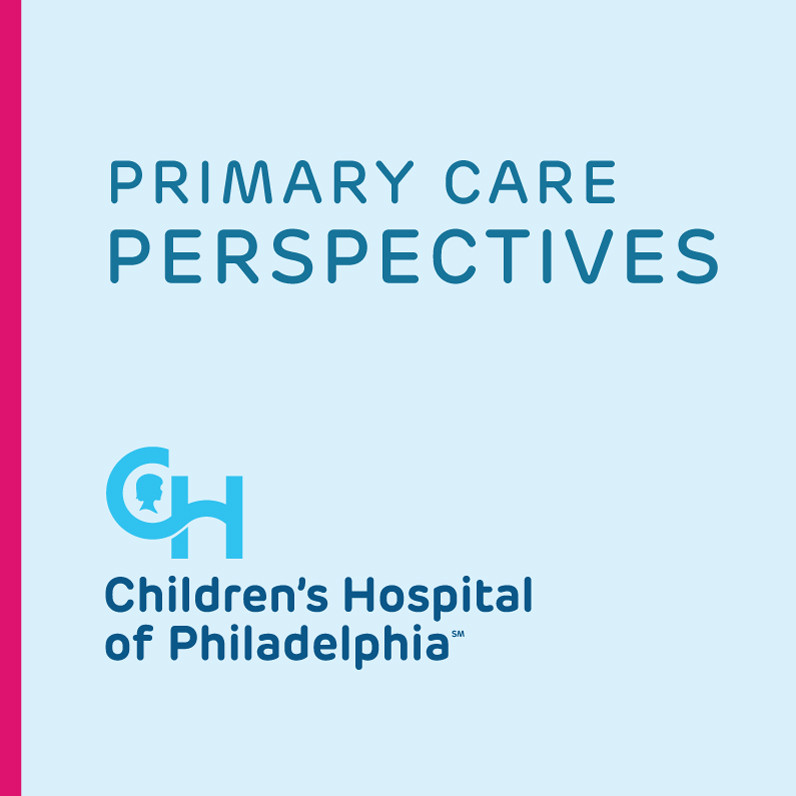
161K
Downloads
208
Episodes
Listen in as Katie Lockwood, MD, a primary care pediatrician at Children’s Hospital of Philadelphia, discusses hot topics in primary care with CHOP subject-matter-experts as they weigh in on issues affecting the daily practice of pediatricians. This podcast is for general informational and educational purposes only and is not to be considered as medical advice for any particular patient. Clinicians must rely on their own informed clinical judgment in making recommendations to their patients. ©2017 by Children’s Hospital of Philadelphia, all rights reserved.
Episodes
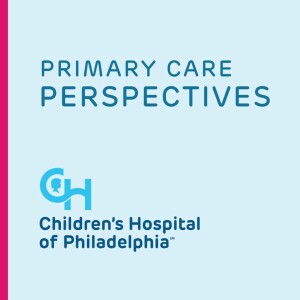
Tuesday Dec 20, 2022
Tuesday Dec 20, 2022
Updated clinical practice guidelines for management of hyperbilirubinemia – including revised phototherapy thresholds – were published in August, the first major change since 2004. Joanna Parga-Belinkie, MD, attending neonatologist, Division of Neonatology, Children’s Hospital of Philadelphia, provides a review for the nursery and primary care clinic, including a new name for “breastfeeding jaundice”; determining risk for isoimmune hemolytic disease; the importance of G6PD in bilirubin results; the limits of visual assessment of jaundice; using transcutaneous bilirubin meters in primary care; answers to parent questions such as, “Will sunlight help jaundiced babies?”; management of “rebound bili”; tools to help measure phototherapy thresholds by age as you adjust to the new guidelines; and more. Published December 2022. This podcast is for general informational and educational purposes only and is not to be considered as medical advice for any particular patient. Clinicians must rely on their own informed clinical judgment in making recommendations to their patients. ©2022 by Children's Hospital of Philadelphia, all rights reserved.
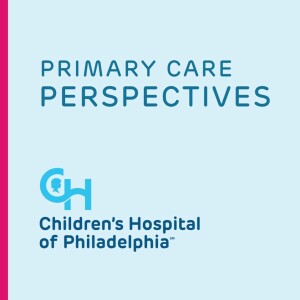
Thursday Dec 01, 2022
Thursday Dec 01, 2022
The Adolescent Protective Collaborative (APC) at Children’s Hospital of Philadelphia is dedicated to providing a specialized medical home for youth who have experienced or are at high risk for sex trafficking. Primary care physicians can be partners in identifying and helping children who are victims. Guests Kali Hackett, MSW, MPH, a public health social worker and clinical services coordinator for the APC, Polina Krass, MD, a fellow in Emergency Medicine and co-founder of the APC, and Anish Raj, MD, a fellow in Child Abuse Pediatrics and co-founder of the APC, provide an overview and practical information, including: defining sex trafficking and commercial exploitation of children (CSEC); red flags in history, complaints, and physical exam; the effects of exploitation beyond reproductive health; an explanation of the Adolescent Protection Collaborative, including what a clinic visit entails for the child and how the team works with other community organizations; and what a primary care physician can do to identify and help victims, including detailed suggestions for how to have the initial conversation, how to ask questions, and what to do if the child confirms they are abused. Kali Hackett, MSW, MPH, a Public Health Social Worker and the Clinical Services Coordinator for the APC Polina Krass, MD, a Fellow Physician in Emergency Medicine and Co-Founder of the APC Anish Raj, MD, a Fellow Physician in Child Abuse Pediatrics and Co-Founder of the APC This podcast is for general informational and educational purposes only and is not to be considered as medical advice for any particular patient. Clinicians must rely on their own informed clinical judgment in making recommendations to their patients. ©2022 by Children's Hospital of Philadelphia, all rights reserved.
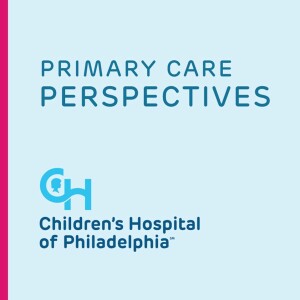
Tuesday Nov 08, 2022
Tuesday Nov 08, 2022
Lyme disease can be challenging to distinguish from many common pediatric infections. Michael Russo, MD, attending physician in the Division of Infectious Diseases at Children’s Hospital of Philadelphia, reviews: disease history and incidence; disease stages, including early localized, early disseminated, and late; tips for distinguishing the Lyme-related symptoms bull’s-eye rash, facial palsy and arthritis from other ailments; indications for testing (and why tick-testing isn’t advised); amoxicillin, doxycycline, and ceftriaxone for different manifestations; duration of treatment; indications for post-exposure prophylaxis; and more. This podcast is for general informational and educational purposes only and is not to be considered as medical advice for any particular patient. Clinicians must rely on their own informed clinical judgment in making recommendations to their patients. ©2022 by Children's Hospital of Philadelphia, all rights reserved.
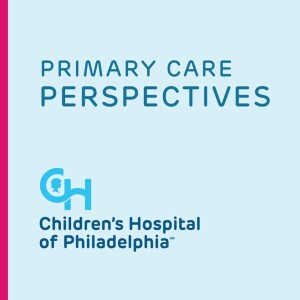
Friday Oct 28, 2022
Friday Oct 28, 2022
The new SMART guidelines for children whose asthma is not well controlled, including use of one inhaler for maintenance and rescue, was a significant change to which both caregivers and providers are still adjusting. Tyra Bryant-Stephens, MD, Medical Director of the Community Asthma Prevention Program and Chief Health Equity Officer of the Center for Health Equity at Children's Hospital of Philadelphia, reviews: who is eligible for SMART; signs and symptoms of asthma that is not well controlled; case examples; tips for discussing the changes with parents; tips for SMART prescription-writing; benefits of the new guidelines; and more. This podcast is for general informational and educational purposes only and is not to be considered as medical advice for any particular patient. Clinicians must rely on their own informed clinical judgment in making recommendations to their patients. ©2022 by Children's Hospital of Philadelphia, all rights reserved.
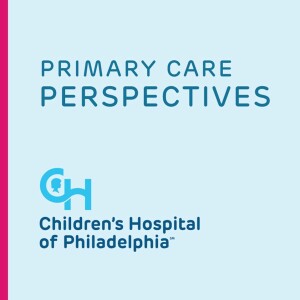
Wednesday Oct 12, 2022
Wednesday Oct 12, 2022
More than half of infants experience gastroesophageal reflux (GER) and 10-20% have gastroesophageal reflux disease (GERD), and guidelines for this issue often change. Here to help clear up confusion is Jefferson Brownell, MD, pediatric gastroenterologist, Children’s Hospital of Philadelphia. He first provides a review of red flags for referral to GI or the emergency room, and then an overview of GERD in otherwise healthy babies, including: scheduled small-volume feedings; thickening options; amino acid formulas and other formula options; positioning during sleep; medication options; duration of meds and how to wean; counseling families hesitant to start meds; and more. This podcast is for general informational and educational purposes only and is not to be considered as medical advice for any particular patient. Clinicians must rely on their own informed clinical judgment in making recommendations to their patients. ©2022 by Children's Hospital of Philadelphia, all rights reserved.
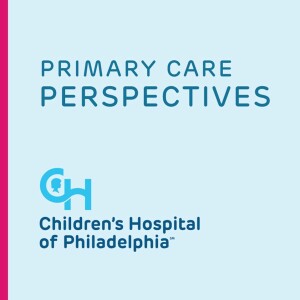
Thursday Sep 29, 2022
Primary Care Perspectives: Episode 133 - Giftedness with Thomas Flynn
Thursday Sep 29, 2022
Thursday Sep 29, 2022
Primary care physicians can play a key role in helping patients who are intellectually and cognitively gifted get the resources they need, including children who may otherwise be missed. Thomas Flynn, PhD, a pediatric neuropsychologist at Children’s Hospital of Philadelphia, discusses: characteristics a primary care physician can look for that may predict a high likelihood of being gifted; pros and cons of knowing a child’s IQ; variabilities in testing; racial and ethnic disparities in identifying intellectually gifted children; the pediatrician’s role in advocating for testing for children; “twice exceptional” children who are gifted and have ADHD or a learning disability; impact of giftedness on mental health; and more. This podcast is for general informational and educational purposes only and is not to be considered as medical advice for any particular patient. Clinicians must rely on their own informed clinical judgment in making recommendations to their patients. ©2022 by Children's Hospital of Philadelphia, all rights reserved.
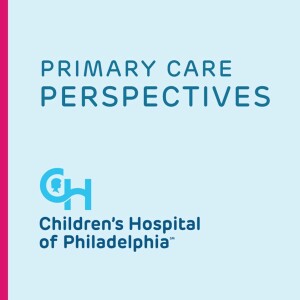
Wednesday Sep 14, 2022
Primary Care Perspectives: Episode 132 - Diagnosing Lupus
Wednesday Sep 14, 2022
Wednesday Sep 14, 2022
Lupus is one of the most common diseases in pediatric rheumatology, but it is complicated to diagnose because its symptoms can be broad and nonspecific, creating overlap with other diagnoses. Sarah Bayefsky, MD, a pediatric and adult rheumatology fellow at Children's Hospital of Philadelphia and the Hospital of the University of Pennsylvania, and Melissa Argraves, MD, MSEd, a pediatric rheumatologist at Nationwide Children’s Hospital, discuss what a primary care physician should look for if suspecting pediatric-onset lupus — a disease that is seen primarily in teenagers, and in particular females of color. They explain the nuances of possible symptoms; what can be observed during a clinical visit; what labs to order; and what a PCP should keep an eye on if a patient has been diagnosed with lupus. This podcast is for general informational and educational purposes only and is not to be considered as medical advice for any particular patient. Clinicians must rely on their own informed clinical judgment in making recommendations to their patients. ©2022 by Children's Hospital of Philadelphia, all rights reserved.
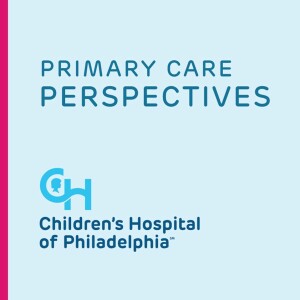
Tuesday Aug 30, 2022
Tuesday Aug 30, 2022
In the U.S., Black women are 3 times more likely to experience infant mortality and previously healthy Black children are 3.4 times more likely to die within 30 days after a surgery. What do these statistics – and many others around healthcare, housing and other topics – have to do with vaccine hesitancy? Everything. Latasha Easter, MD, a pediatric resident at Children’s Hospital of Philadelphia, provides an overview of: disparities in immunization rates; the historical context for distrust of the medical establishment and government among Black patients, and the importance of acknowledging it; the CASE Approach, a framework for conversations with hesitant families; sample conversations and responses; an HPV vaccination success story; social media as an information source; and more. This podcast is for general informational and educational purposes only and is not to be considered as medical advice for any particular patient. Clinicians must rely on their own informed clinical judgment in making recommendations to their patients. ©2022 by Children's Hospital of Philadelphia, all rights reserved.
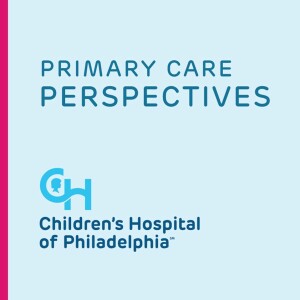
Thursday Aug 11, 2022
Thursday Aug 11, 2022
Did you know that lack of canal swelling should be a red flag in physical exam of otorrhea? Ryan Ruiz, MD, MS, attending physician, Division of Otolaryngology, Children’s Hospital of Philadelphia, provides a broad review, covering: key physical exam findings that indicate otitis externa; using antibiotic ear drops and/or oral antibiotics; when to culture; the role of cerumen; when to bring patients back to evaluate tympanic membrane closure; guidelines for water precautions, including for children with ear tubes; evaluating for acute mastoiditis; assessments after trauma; tools an ENT and audiologists have at their disposal that primary care doesn’t; and more. Published August 2022. This podcast is for general informational and educational purposes only and is not to be considered as medical advice for any particular patient. Clinicians must rely on their own informed clinical judgment in making recommendations to their patients. ©2022 by Children's Hospital of Philadelphia, all rights reserved.
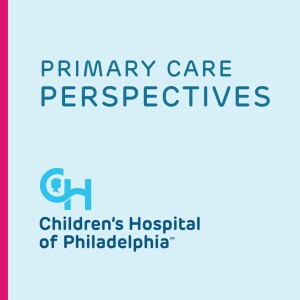
Thursday Jul 28, 2022
Primary Care Perspectives: Episode 129 Mental, Emotional, Social and Physical Health
Thursday Jul 28, 2022
Thursday Jul 28, 2022
The Philadelphia Youth Sports Collaborative has more than 70 member organizations that help promote leadership, grit, and other important skills through sports. Beth DeVine, executive director, Philadelphia Youth Sports Collaborative, explains the term “sports-based youth development” and provides an overview of the organization’s goals and role, including trauma-informed coaching, outcome measurement, equitable access, sports as a promoter of social and emotional learning, differences between benefits to boys and girls, and more. She also provides advice on how pediatricians can encourage kids to participate in beneficial sports programs, including pointing them to rec centers and specific resources. This podcast is for general informational and educational purposes only and is not to be considered as medical advice for any particular patient. Clinicians must rely on their own informed clinical judgment in making recommendations to their patients. ©2022 by Children's Hospital of Philadelphia, all rights reserved.
